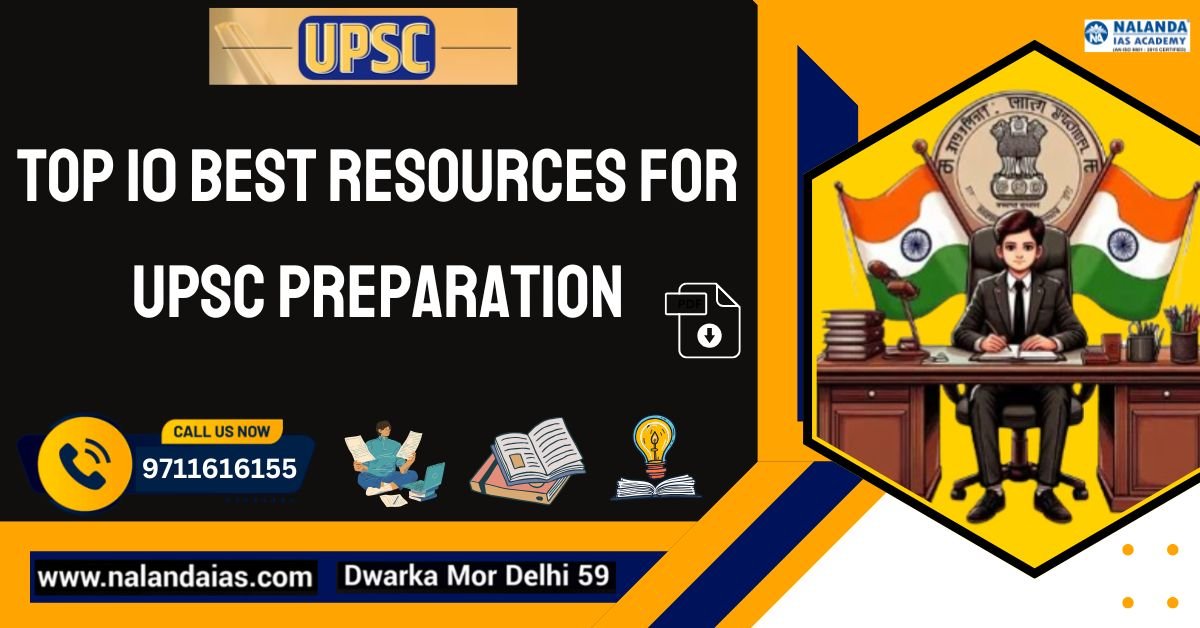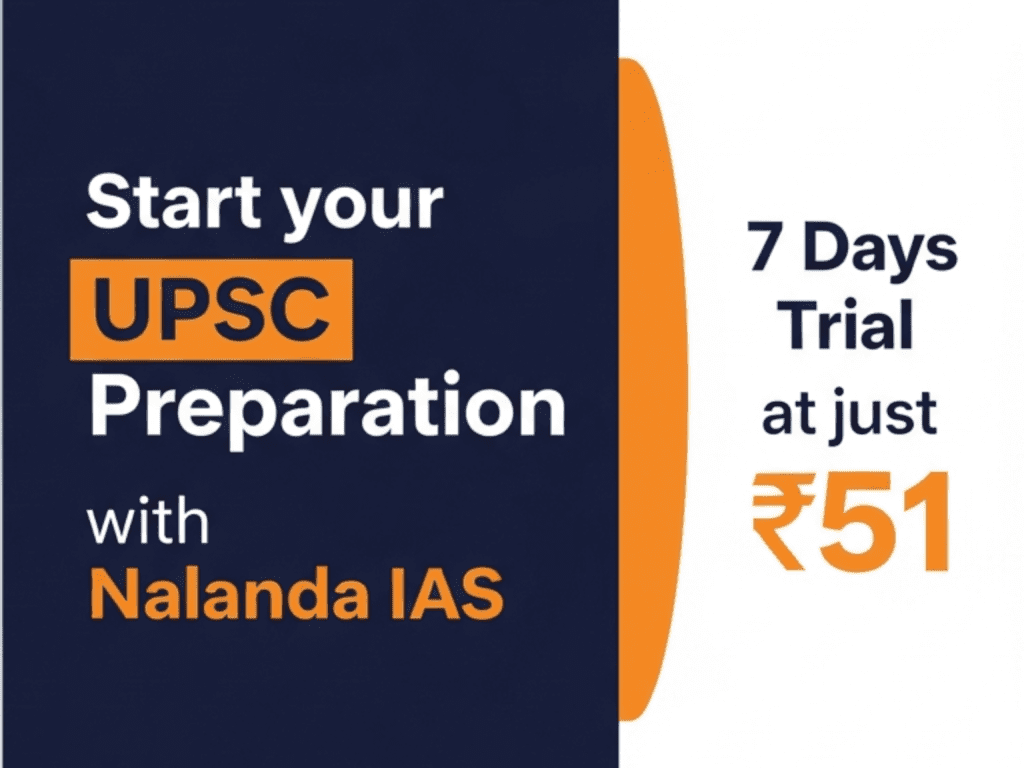Top 10 Best Resources for UPSC Preparation

The UPSC Civil Services Examination is one of the most prestigious and challenging exams in India. Success requires a strategic approach, consistent hard work, and, importantly, access to the best resources. Here’s a list of Top 10 Best Resources for UPSC Preparation that can significantly enhance your UPSC IAS preparation journey.
1. NCERT Books (Class 6 to 12)
Why It’s Essential: NCERT textbooks from classes 6 to 12 serve as the foundation for IAS preparation. They cover basic concepts across History, Geography, Economics, and Polity, and are written in an accessible language, making them ideal for beginners.
Top 10 Best Resources for UPSC Preparation
Recommended Subjects:
- History: Ancient, Medieval, and Modern India (Class 6-12)
- Geography: NCERT Geography books from Class 6-12
- Polity and Economics: NCERT Political Science and Economics books (Classes 9-12)
How to Use: Start by reading NCERTs to build a foundational understanding. Summarize key concepts in notes and use these as reference materials as you progress to advanced books.
2. Standard Reference Books
Key Books to Include:
- Indian Polity by M. Laxmikanth: Essential for mastering Indian Polity.
- Indian Economy by Ramesh Singh: Provides detailed insights into economic concepts and issues.
- History of Modern India by Bipan Chandra: Ideal for Modern History.
- Environment and Ecology by Shankar IAS: A must-read for environment-related topics.
- Geography of India by Majid Hussain: Covers important geographical concepts with UPSC-centric information.
How to Use: Follow NCERTs with these standard books to develop a comprehensive understanding. Focus on creating topic-wise notes from these sources to use during revision.
Top 10 Best Resources for UPSC Preparation
3. The Hindu Newspaper
Importance: Current affairs form a substantial portion of both the UPSC Prelims and Mains exams. The Hindu is a trusted source for high-quality news and in-depth articles on national and international events.
Coverage Tips:
- Editorials: Important for critical analysis and developing balanced viewpoints.
- Front Page & National News: Stay updated on relevant national events.
- Science & Technology, Environment, and Economy: These sections provide context on topics covered in the UPSC syllabus.
How to Use: Summarize news articles daily, focusing on important issues. Maintain a notebook specifically for current affairs notes, which you can revise closer to the exam.
Top 10 Best Resources for UPSC Preparation
4. Yojana and Kurukshetra Magazines
Why They’re Important: These government publications are ideal for understanding socio-economic and rural development issues. They provide in-depth, authentic analysis on current topics relevant to the Mains GS papers, particularly for Essay, GS II, and GS III.
How to Use: Focus on monthly editions. Highlight government schemes, success stories, case studies, and issues related to policy implementation. Keep topic-wise notes for essay and General Studies answers.
5. PIB (Press Information Bureau)
Benefits: PIB is the official government platform that shares press releases, speeches, and policies directly from the government. It’s a reliable source for government schemes, programs, and factual data.
How to Use: Follow the PIB website or app daily to track policy updates, government announcements, and initiatives. Create a separate document for notes on government schemes and programs, which are critical for both Prelims and Mains.
6. Rajya Sabha TV (RSTV) & Sansad TV Debates
Why Watch: These channels broadcast discussions featuring experts and policymakers on current issues, which can help you understand multiple perspectives on various topics relevant to UPSC GS papers.
Recommended Programs:
- Big Picture: For insights into socio-political issues.
- India’s World: For international relations topics.
- Desh Deshantar: Comprehensive analysis on national issues.
How to Use: Take brief notes during these debates, focusing on important points and contrasting opinions. These notes can enrich your answers in Mains by presenting balanced views on complex topics.
7. Nalanda IAS Monthly Current Affairs
Purpose: Nalanda IAS offers concise monthly current affairs booklets, which summarize key issues and events.
How to Use: Use the monthly compilations to review events you may have missed in daily news. This is especially helpful as a revision resource in the months leading up to the Prelims and Mains, covering essential facts, data, and analysis in a compact form.
8. Nalanda’s Economy Series
Why It’s Useful: Understanding the economy is critical for UPSC, but it can also be challenging. Nalanda’s Economy series breaks down complex economic concepts in a student-friendly way, making it easier to grasp.
How to Use: Follow Nalanda IAS Academy video lectures and articles on major economic topics, especially fiscal policy, monetary policy, and other key areas. Make topic-wise notes, which can later be organized according to the syllabus.
9. Nalanda IAS Academy Online Platforms
Why These Websites Stand Out: These platforms offer daily quizzes, answer writing practice, and insights on important topics, which are particularly beneficial for Prelims and Mains preparation.
Recommended Features:
- Daily Current Affairs Quizzes: Test your knowledge on current affairs.
- Secure Initiative: Daily answer writing practice, with sample answers.
- Static Content: These websites have well-organized resources covering core topics in the UPSC syllabus.
How to Use: Utilize daily quizzes to reinforce retention of current affairs. Focus on answer-writing exercises to refine your articulation, structure, and time management.
10. Previous Year Question Papers
Significance: Analyzing past years’ question papers gives you insight into the exam pattern, difficulty level, and types of questions asked by UPSC.
How to Use: Start by practicing papers from the last 10 years. Attempt the questions in a timed setting to simulate exam conditions. Review answers by comparing with UPSC standards and identify weak areas to work on. Analyzing these can guide you in focusing on high-weightage topics.
Additional Tips for Effective Preparation
- Create a Study Plan: Make a structured timetable that allocates time for current affairs, subject-wise study, and answer writing.
- Focus on Revision: Periodic revision is key. Set aside time every week to revisit previously studied topics.
- Mock Tests: Enroll in a test series to simulate exam conditions, improve time management, and identify weaknesses.
- Self-Made Notes: Compile concise notes while studying; this will serve as a valuable resource during revisions.
These ten resources form the backbone of an effective UPSC preparation strategy. By combining foundational books, current affairs, expert lectures, and daily answer-writing practice, you can develop the knowledge and skills needed to succeed. Remember, the key is consistency, clarity, and continual self-assessment. Good luck with your preparation!
Top 10 Best Resources for UPSC Preparation
Best resources for UPSC IAS preparation
Standard books for UPSC preparation
Rajya Sabha TV for UPSC preparation
UPSC previous year question papers
Answer writing practice for UPSC
Top websites for UPSC preparation
UPSC test series and mock exams
Yojana and Kurukshetra for UPSC


